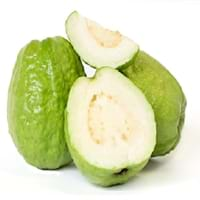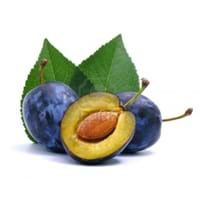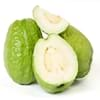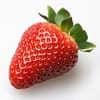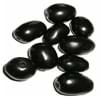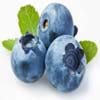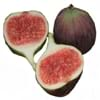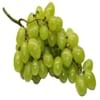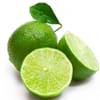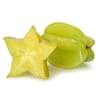Health Benefits
Cancer prevention, Diarrhea treatment, Prevents constipation, Scurvy treatment, Treatment of dysentary
Cancer prevention, Cures gastro-intestinal troubles, Heart care, Increase in haemoglobin, Prevents high blood pressure
General Benefits
Controls blood pressure, Cures cough, Improves eye vision, Maintains healthy cholesterol level, Treatment of common cold
Anti-inflammatory properties, Boosts immune system, Digestive aid, Eye care, Flu treatment, Helps in weight loss, Maintains healthy cholesterol level, Treatment of common cold
Skin Benefits
Anti-aging benefits, Brightens and lightens complexion, Hydrates skin, Treatment of skin diseases
Anti-aging benefits, Brightens and lightens complexion, Reduces wrinkles, Skin revitalization, Treatment of dark spots
Hair Benefits
Prevents hair loss
Prevents hair loss, Promotes longer and healthier hair, Protects hair, Remedy for split ends, Treatment of dandruff
Allergy Symptoms
Breathing difficulty, Coughing, Runny nose, Sneezing, Swelling of mouth, tongue or lips, Wheezing
Abdominal pains, Anaphylaxis, Vomiting
Side Effects
Hair thinning, Nail thinning, Skin problems, Tooth decay, Weakness, Possibly unsafe during pregnancy
Allergic reaction
Best Time to Eat
As a snack in the late afternoon, Don't consume at night and before bed, Eat the fresh ones, avoid mixing with any other foods, don't eat after meal., Morning time (before lunch)
As a snack in the late afternoon, Don't consume at night and before bed, Don't eat after meal, Morning time (before lunch)
Vitamin B5 (Pantothenic Acid)
Vitamin C (Ascorbic Acid)
Vitamin K (Phyllochinone)
Phytosterol
Not Available
Calories in Fresh Fruit with Peel
Calories in Fresh Fruit without Peel
Not Available
Not Available
Calories in Frozen Form
Not Available
Type
Tree fruit, Tropical
Tree fruit
Season
All seasons
Summer
Varieties
Lucknow 49, Allahabad Safeda, Chittidar, Harijha, Apple guava, Hafshi, Arka Mridula and Allahabad Surkha
Merryweather Damson, Shropshire Prune, President plum, Damson farleigh and Damson langley bullace
Color
Green, Pink, Yellow
Dark purple
Inside Color
White
Yellow
Taste
Sweet-Sour
Juicy, Sweet, Tart
Origin
Central America, Mexico, South America
Syria
Soil Type
Loam, Rocky, Sandy
Clay, Loam, Moist, Sandy loam, Well-drained
Climatic Conditions
Sunny
Cold
Facts about
- The black pigment in Guava leaves is used for textile applications.
- Guava leaves are used to make tea.
- Oils extracted from guava seeds are used in various cosmetics.
- Guava wood is used for decorative purposes.
- The name Damson originates from the original name 'Damacus plum'.
- Damson wine was very popular in 19th century.
- This fruit is often used in jams due to its slightly tart behaviour.
Top Producer
India
United Kingdom
Other Countries
China, Indonesia, Mexico, Nigeria, Pakistan, Philippines, Thailand
Ireland, United States of America
Top Importer
Canada
United States of America
Top Exporter
India
France
Botanical Name
Psidium guajava
Prunus domestica subsp. insititia
Synonym
Not Available
Not Available
Subkingdom
Tracheobionta
Tracheobionta
Division
Magnoliophyta
Magnoliophyta
Class
Magnoliopsida
Magnoliopsida
Family
Myrtaceae
Rosaceae
Species
Psidium guajava
Prunus domestica subsp. insititia
Generic Group
Myrtle
Not Available
Difference Between Guava and Damson
We might think that Guava and Damson are similar with respect to nutritional value and health benefits. But the nutrient content of both fruits is different. Guava and Damson Facts such as their taste, shape, color, and size are also distinct. The difference between Guava and Damson is explained here.
The amount of calories in 100 gm of fresh Guava and Damson with peel is 68.00 kcal and 46.00 kcal and the amount of calories without peel is Not Available and Not Available respectively. Thus, Guava and Damson belong to Low Calorie Fruits and Low Calorie Fruits category.These fruits might or might not differ with respect to their scientific classification. The order of Guava and Damson is Myrtales and Rosales respectively. Guava belongs to Myrtaceae family and Damson belongs to Rosaceae family. Guava belongs to Psidium genus of Psidium guajava species and Damson belongs to Prunus genus of Prunus domestica subsp. insititia species. Beings plants, both fruits belong to Plantae Kingdom.
